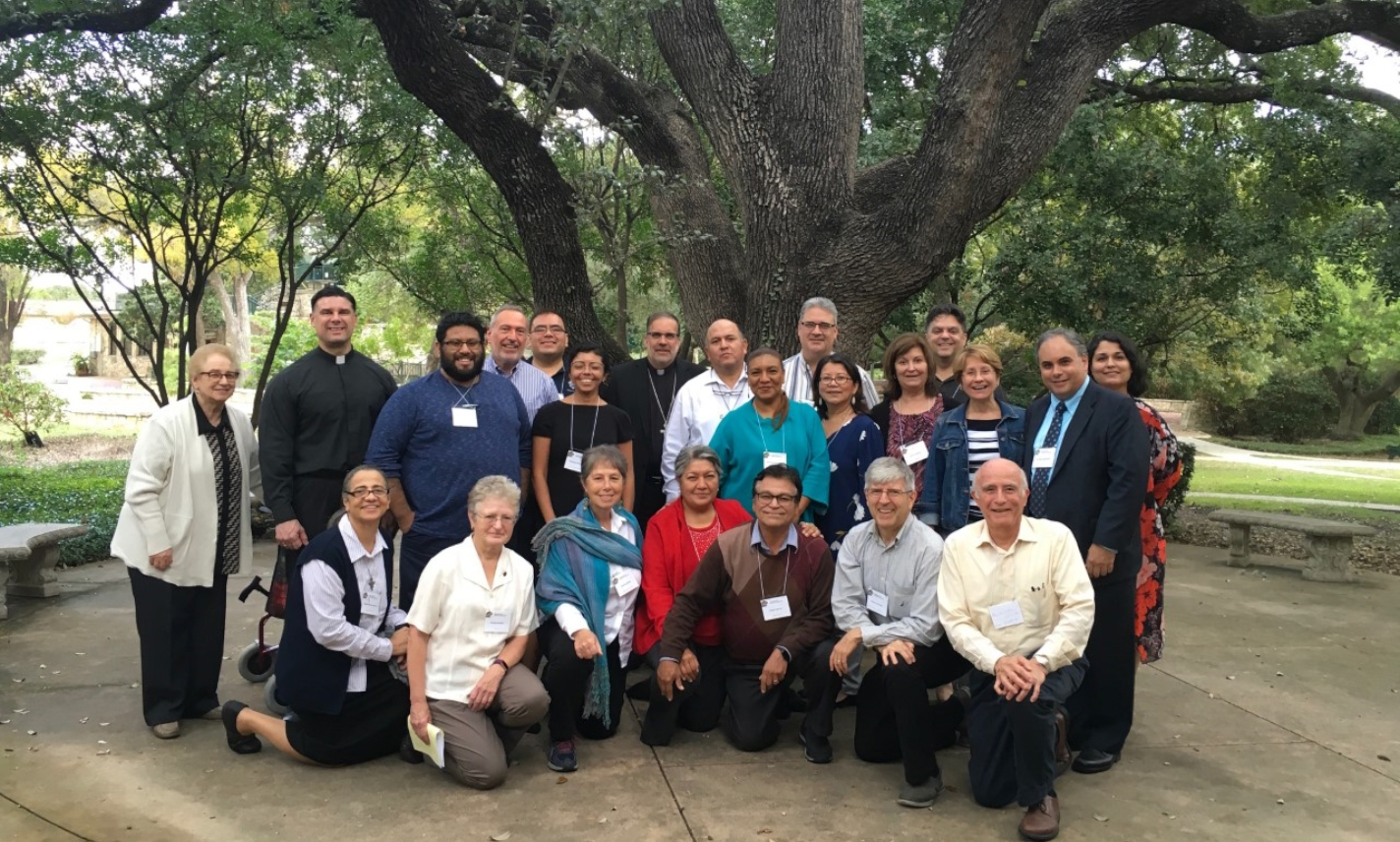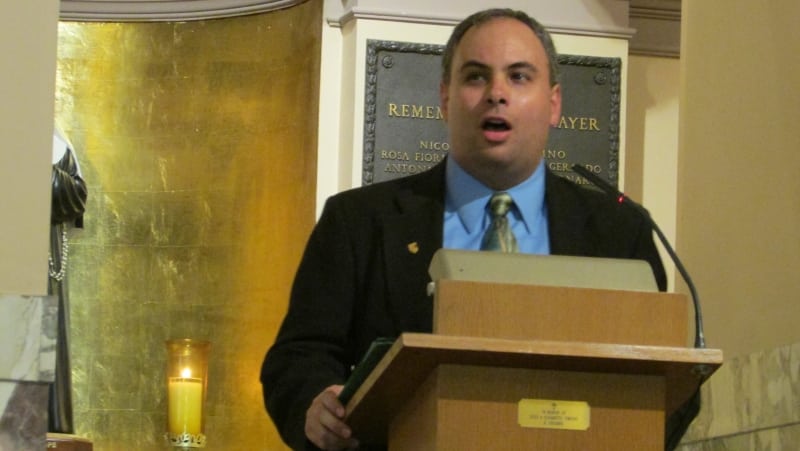Advent Weekday | December 17, 2022
The season of Advent invites us to enlarge our spiritual vision and look ahead, to see and respond to God who beckons us into a future he wants to create for us. Providentially, God has given us a glimpse of that future in our past. As we get closer to Christmas, and especially starting today, and continuing to the Mass of Christmas Eve, the readings of the liturgy focus us ever more intently on the coming celebration of Christmas. They remind us that the Good News – the Gospel – isn’t just in the past, but lived out in the present. They also remind us that the best is yet to come, quite literally, for us and for all creation.
That sense is also carried in the Church’s Evening Prayer which includes the chanted “O Antiphons,” which mark each day between now and Christmas. Many know these antiphons better as the verses of the ancient Christian hymn “O Come, O Come Emmanuel.” Today’s “O Antiphon,” taken from that song’s lyrics is: “O come thou wisdom from on high, who orders all things mightily! To us the path of knowledge show, and teach us in her ways to go.” The ordering of God’s plan in salvation history is the topic of today’s readings as well.
The first reading from Genesis has Jacob – on his deathbed – blessing each of his 12 sons, whose names were taken for the 12 tribes of Israel. Judah, the last of the brothers, the youngest, and seemingly the least by the standards of the time, is promised great power and glory. The image of the “Lion of Judah,” referenced here, was also used by early Christians to refer to Christ.
God favors the ones who seem smallest and of least account. The psalm promises the reign of the Messiah will be a just and righteous one that cares for the afflicted and the poor. One can imagine the psalmist singing this song of praise in the face of the historical kingdoms of the time, including Israel itself. Those kingdoms often did not practice justice or care for the poor. The psalmist enlarges their vision and ours to remind us: a better kingdom is coming – one from God and not from people.
And the Gospel gives us one of two versions of the genealogy of Jesus in the Gospels. This one, from Matthew, emphasizes Jesus’ Jewish ancestors, as he is the heir of the promises God made to the Israelite people. Note that the genealogy includes Judah, the only one mentioned by name among the 12 brothers.
The other names highlighted in the genealogy are an interesting mix: many hard to pronounce, some well-known for their righteousness and holiness, and more than a few who were corrupt kings, scoundrels, or just plain bad people!
The not-so-great-great human grandfathers of Jesus may remind us of the fact that Jesus himself said he came to seek out and save sinners, not the already righteous. Furthermore, there are many people in the genealogy who are completely unknown to us – including, it must be added, most of the mothers, whose names are not recorded, except for five – Tamar, Rahab, Ruth, the wife of Uriah (who was Bathsheba), and Jesus’ own mother, Mary. The first four are all included due to their significance in Jewish history. Mary, of course, is the mother of Jesus and, in a reversal, Joseph is named only because he is married to her! Her being the last name, and the inclusion of many seeming “unknowns” in the genealogy, serves to remind us that God does not often work through the very powerful, but through the humble faith of those whom worldly eyes deem of little or no importance.
These readings remind us that God has a plan for history – our common history and our personal ones, and that God is putting that plan into action through Christ. As our Advent journey continues, let us reflect on the ways we can cooperate with that plan and be more aware of God’s plan and work in our own time and place.
God give you peace!


 Request Dr. DelMonico's professional services for a liturgical, ministerial or leadership consultation, or for an academic or public presentation.
Request Dr. DelMonico's professional services for a liturgical, ministerial or leadership consultation, or for an academic or public presentation.